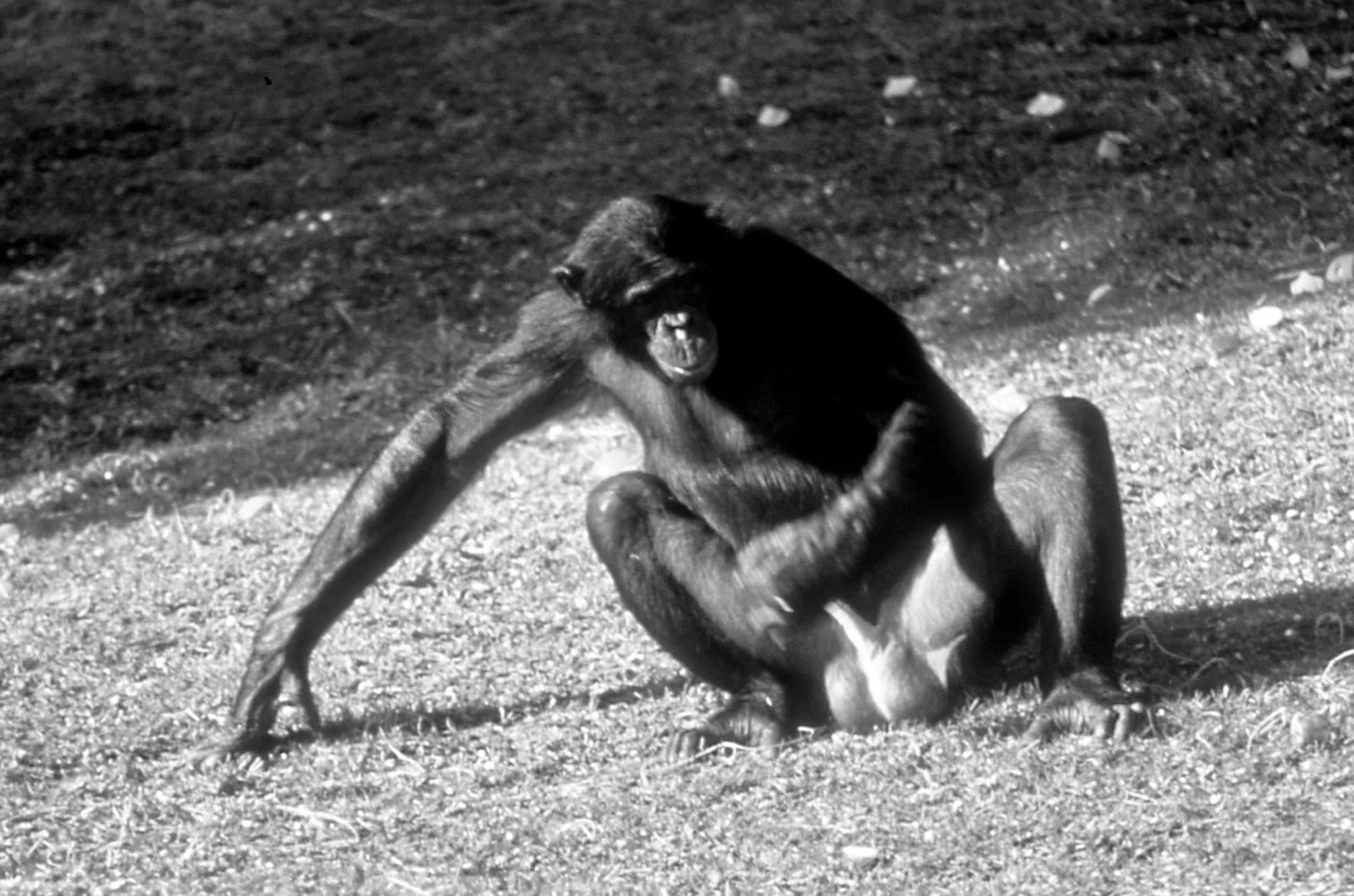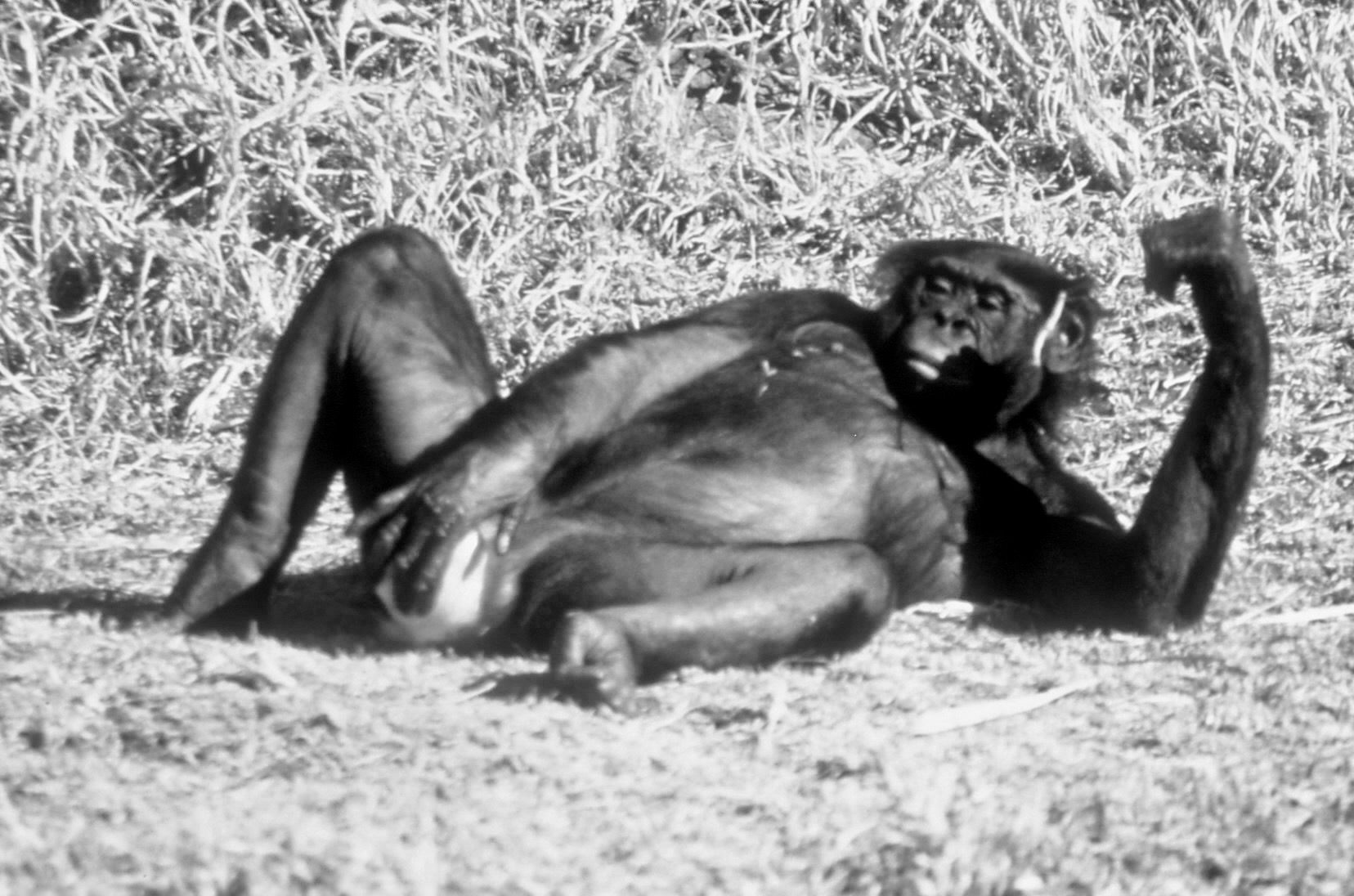Pleasuring one’s genitalia is a very widespread practice among animals, but primates (humans included) are particularly partial to a little self-love. This might be because our hands are much better suited to the act than the limbs of most other creatures, but biologists suspect there is more to it than that. A new study doesn’t really settle the question, but it does provide a lot more data confirming a fondness for spanking the monkey is something apes and monkeys themselves are partial to.
In one sense it is not hard to work out why animals choke the chicken: it feels good. This hasn’t stopped evolutionary biologists from puzzling over it, however. As a paper in Proceedings of the Royal Society B notes: “It does not directly increase survival prospects and, by definition, occurs to the exclusion of reproductive partners, while incurring costs in terms of time, attention and energy.”
Unless there is some evolutionary benefit, strict evolutionists argue, wankers should have been less likely to pass on their genes than those more abstinent, leading over many generations to the practice becoming rare. Given what a visit to the zoo, or sometimes the seaside, reveals, the argument goes, there must be something keeping downstairs DJing in vogue.
The paper outlines several competing explanations. According to one theory, a little marching the penguin can actually increase the chances of parenthood. One version proposes that masturbation releases sperm passed its use-by date, leaving nothing but the freshest load for future partners. Another hypothesis holds that subordinate males need to get their end away fast with any receptive female, lest they be interrupted by someone more dominant. Priming the pump, as it were, might assist this process.
Arousal changes the pH of the vaginal tract, which can boost the chances of successful insemination and orgasm may also help sperm make their way to the egg. Consequently, among species where females don’t get to have too much choice about who they mate with, when a female does find a partner she likes, some post-copulatory self-stimulation could increase the chances he’s the one who fathers her children.
Alternatively, the pathogen avoidance hypothesis proposes that regular flushing of the genitals helps prevent sexually transmitted infections.
Others argue these fall prey to the fallacy that every behavior must have an evolutionary benefit. Perhaps masturbation is just a byproduct of how good partnered sex feels – something whose evolutionary value is not in question – and isn’t damaging enough to be selected against.
Despite all this theorizing, the paper’s authors note: “There is little systematic comparative research into this behavior,” something they have set out to correct.
Using 246 published papers and questionnaires to 150 primatologists and zoo keepers, Dr Matilda Brindle of University College London and co-authors looked into which species have been spotted giving themselves a hand. They then tested these results against predictions based on various explanations.
For example, some hypotheses predict we should see a lot more masturbation in animals where females have multiple partners than in monogamous species. Others would anticipate the ultimate safe sex to be most common in those prone to bacterial infections.

Masturbation has been reported more in male primates than females, but is that because it’s harder to spot, male sexuality is more studied, or it’s actually more common?
Image Credit: Amy Parish/The Royal Society
The study reveals masturbation runs deep in the primate family tree, most likely having been a pastime of the last common ancestor of monkeys and apes. Other primates are less partial, suggesting it may have evolved after we split from lemurs and lorises, the latter perhaps being slow adopters. It indicates evolutionary benefits are at least part of the story.
Reports of males masturbating were more common than females, but Brindle told IFLScience: “This may be because female masturbation and arousal is harder to spot than in males, but also reflects the fact that, historically, female sexual behavior and morphology has been less well-studied than in males so the data weren’t available in the literature.”
“We found support for coevolution between masturbation presence and mating system in male, but not female, primates,” the authors write. Consequently, we still don’t know why most females of most ape species have been spotted circling Venus.
Pathogens don’t seem to explain why some branches of the primate family tree started masturbation, but once it took hold, male primates prone to genital infections, however, appear to know when they are onto a good thing. It’s for their health, honest.

A female bonobo having fun.
Image Credit: AmyParish/The Royal Society
Brindle acknowledged to IFLScience that the study only looks at whether a species has been caught clicking the home page, not how often this occurs, and this weakens their conclusions. “We aimed to collect data on masturbation frequency too, but didn’t have enough to conduct meaningful analysis…. We’re hoping that as more data becomes available we can address this in a more nuanced light.”
The findings suggest several evolutionary explanations probably play a part in making DIY a favorite primate sport. They offer less support for the idea that it’s just an outlet for individuals whose sex drive isn’t being met in other ways, since so many of the reports related to solo fun immediately before or after sex.
Sex researchers are often hindered by difficulties in getting honest answers. Although Brindle and co-authors couldn’t ask their subjects directly, she told IFLScience there were no such troubles with the zoo keepers and primatologists. “We have great colleagues who took our questionnaires in their stride and were enthusiastic about helping out! In my experience, most zoologists have been completely unphased (albeit amused) by our research,” she said.
The study is published in Proceedings of the Royal Society B.
Source Link: Why Do Primates Masturbate So Much? Study Traces Origins Of Spanking The Monkey